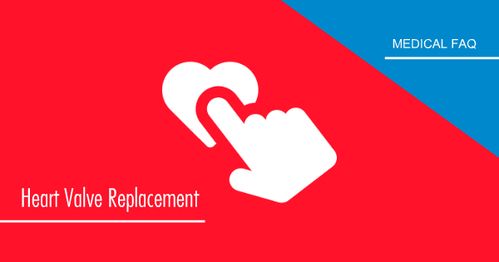Heart Valve Replacement

I had a heart valve replacement when I was young. Can I learn to scuba dive?
Doctors in the United States perform more than 70,000 heart valve replacements each year. From birth, an individual may have an abnormal heart valve that requires replacement due to accelerated wear and tear (e.g., bicuspid aortic valves), valve damage that may occur following an infection, or as an extension of damage to the adjacent heart muscle.
Most commonly, valve replacement develops from the consequences of bacterial throat infections, such as Strep throat. In the body's attempt to fight off the bacterial infection, the heart valves, as innocent bystanders, sustain damage (called rheumatic heart disease). With the use of antibiotics, rheumatic heart disease occurs less commonly today, but individuals who had this problem during childhood may now, as adults, experience the consequences of the damage to their heart valves.
Fitness and Diving Issue
Anyone who has had heart surgery should be scrutinized a little more carefully regarding medical fitness for scuba diving. With a properly functioning heart valve and no symptoms of cardiovascular disease, the real concern for a diver with an artificial heart valve is the anticoagulation (blood thinning) medication required to keep the valve functioning. A mechanical valve (made of metal, polymer etc.) requires medication to keep blood clots from forming on the valve. This, of course, increases the risk of bleeding, and the diver needs to be aware of this risk, especially as it relates to trauma. Heart valves from pigs are also used to replace damaged native valves. These do not require anticoagulation medication, but they wear out sooner and require replacement earlier than mechanical valves.
Most commonly, valve replacement develops from the consequences of bacterial throat infections, such as Strep throat. In the body's attempt to fight off the bacterial infection, the heart valves, as innocent bystanders, sustain damage (called rheumatic heart disease). With the use of antibiotics, rheumatic heart disease occurs less commonly today, but individuals who had this problem during childhood may now, as adults, experience the consequences of the damage to their heart valves.
Fitness and Diving Issue
Anyone who has had heart surgery should be scrutinized a little more carefully regarding medical fitness for scuba diving. With a properly functioning heart valve and no symptoms of cardiovascular disease, the real concern for a diver with an artificial heart valve is the anticoagulation (blood thinning) medication required to keep the valve functioning. A mechanical valve (made of metal, polymer etc.) requires medication to keep blood clots from forming on the valve. This, of course, increases the risk of bleeding, and the diver needs to be aware of this risk, especially as it relates to trauma. Heart valves from pigs are also used to replace damaged native valves. These do not require anticoagulation medication, but they wear out sooner and require replacement earlier than mechanical valves.
Posted in Dive Safety FAQ
Categories
2025
2024
February
March
April
May
October
My name is Rosanne… DAN was there for me?My name is Pam… DAN was there for me?My name is Nadia… DAN was there for me?My name is Morgan… DAN was there for me?My name is Mark… DAN was there for me?My name is Julika… DAN was there for me?My name is James Lewis… DAN was there for me?My name is Jack… DAN was there for me?My name is Mrs. Du Toit… DAN was there for me?My name is Sean… DAN was there for me?My name is Clayton… DAN was there for me?My name is Claire… DAN was there for me?My name is Lauren… DAN was there for me?My name is Amos… DAN was there for me?My name is Kelly… DAN was there for me?Get to Know DAN Instructor: Mauro JijeGet to know DAN Instructor: Sinda da GraçaGet to know DAN Instructor: JP BarnardGet to know DAN instructor: Gregory DriesselGet to know DAN instructor Trainer: Christo van JaarsveldGet to Know DAN Instructor: Beto Vambiane
November
Get to know DAN Instructor: Dylan BowlesGet to know DAN instructor: Ryan CapazorioGet to know DAN Instructor: Tyrone LubbeGet to know DAN Instructor: Caitlyn MonahanScience Saves SharksSafety AngelsDiving Anilao with Adam SokolskiUnderstanding Dive Equipment RegulationsDiving With A PFOUnderwater NavigationFinding My PassionDiving Deep with DSLRDebunking Freediving MythsImmersion Pulmonary OedemaSwimmer's EarMEMBER PROFILE: RAY DALIOAdventure Auntie: Yvette OosthuizenClean Our OceansWhat to Look for in a Dive Boat
2023
January
March
Terrific Freedive ModeKaboom!....The Big Oxygen Safety IssueScuba Nudi ClothingThe Benefits of Being BaldDive into Freedive InstructionCape Marine Research and Diver DevelopmentThe Inhaca Ocean Alliance.“LIGHTS, Film, Action!”Demo DiversSpecial Forces DiverWhat Dive Computers Don\'t Know | PART 2Toughing It Out Is Dangerous
April

No Comments